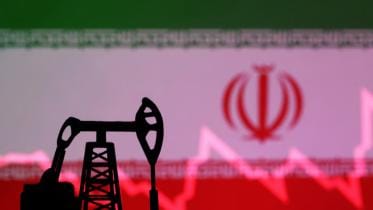Global Oil Price
Oil seen opening up after Iran's attack on Israel
But further gains may depend on response, analysts say
14 April 2024, 14:27 PM
What impact can the Israel/Hamas war have on oil?
A war between Islamist group Hamas and Israel poses one of the most significant geopolitical risks to oil markets since Russia's invasion of Ukraine last year.
15 October 2023, 11:23 AM
Stocks tumble, oil jumps in shaky start to fourth quarter
The final quarter of the year got off to a shaky start on Monday, with world stocks languishing at their lowest levels since late 2020 - when the global economy was still reeling from the COVID-19 pandemic.
3 October 2022, 10:06 AM
Oil plunges to 8-month low on strong dollar, recession fears
Oil prices plunged about 5 per cent to an eight-month low on Friday as the US dollar hit its strongest level in more than two decades and on fears rising interest rates will tip major economies into recession, cutting demand for oil.
25 September 2022, 07:42 AM
Is civilisation in decline, clashing or rejuvenating?
Rising uncertainties are making global compromise and cooperation more unlikely
8 September 2022, 08:28 AM
Oil prices climb over $2/bbl ahead of OPEC+ meeting
Oil prices rose more than $2 a barrel on Monday, extending gains as investors eyed possible moves by OPEC+ producers to cut output and support prices at a meeting later in the day.
5 September 2022, 07:17 AM
Oil prices edge higher on tight supply, firmer demand expectations
Oil prices rose on Wednesday, buoyed by tight supplies and the prospect of rising demand from the upcoming start of the summer driving season in the United States, the world's biggest crude consumer.
25 May 2022, 07:21 AM
Global oil price highest since 2008
Oil prices soared to their highest since 2008 due to delays in the potential return of Iranian crude to global markets and as the United States and European allies consider banning imports of Russian oil.
7 March 2022, 07:33 AM







